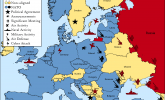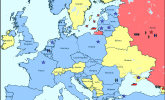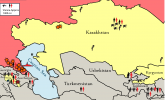Russia in Review: Kremlin Tests Authoritarian Societal Control Measures during COVID-19 Crisis
April 13, 2020 - ISW PressPutin’s response to the COVID-19 crisis is focused on shaping reality to conform to his desired narrative. The Kremlin is restricting the free flow of information on COVID-19, jailing doctors, and obfuscating its public infection numbers to support Putin’s central narrative that COVID-19 will affect Russia less than much of the world. The Kremlin is additionally testing new methods of societal control as part of its efforts to control the spread of COVID-19. The Kremlin will retain these improved authoritarian tools for use against future opposition.






